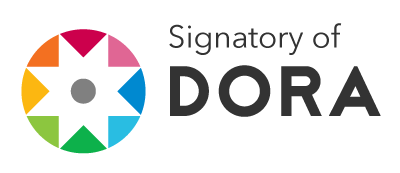Sistemas inteligentes, ingeniería e hidroinformática
Abstract
This work presents a conceptual framework about the so-called Intelligent Systems regarding their usage in the filed of engineering and particularly in the new discipline of Hydroinformatics. These systems include two branches: Computational Intelligencee and Knowledge-based systems. Within the first ones can be included the paradigms of Artificial Intelligence such as artificial neural networks, genetic algorithms and fuzzy logic. The second ones comprise the rule-based systems and in particular, the decision trees and the (fuzzy) expert systems. In general, all of them offer another possibility aimed at approaching the complex problematic that exist in the study of hydrosystems. Therefore, this work represents an effort in order to promote their usage and knowledge in Colombia, specially among civil engineers, environmental engineers and in general, among those professionals and scientists involved with Colombian water resources.Downloads
References
ABBOTT,M. Hydroinformatícs: information technology and the aquatic environment, Avebury Technical. Aldershot 1991.
DELGADO,A. Inteligencia artificial y minirobots, Ecoe Ediciones,Bogotá, 1998.
DUQUE,C. Estudio de la hidroinformática en Colombia,Proyecto de Grado Ingeniería Civil, Pontificia Universidad javeriana, Bogotá, Colombia, 2002.
Grupo de Informática en Ingeniería Civil de TU Delft, http://www.cti.ct.tudelft.nl/Research/ozyrog.html, 2001.
HAYKIN, S. Neural network. A comprehensive foundatian, Macmilian Publishing, London, 1994.
HOPGOOD, A. Intelligent systems for engineers and scientists, CRC Press, London, 2000.
KOSKO,B. Neural networks andfuzzy systems:A dynamical system approach to machine intelligence. Prentice Hall, New Jersey (USA), 1992.
MOLKENTHIN,F. WWW Based Hydroinformatics 5ystems, Brandenburg University of Technology at Cottbus.http://www.bauin[tu-cottbus.de/Structure/StafffFrank/Booksfhabilitation/, 2000).
OBREGÓN,N. Principios de hidroinformática urbana, Seminario Internacional de Hidrología Urbana. Bogotá. Universidad Javeriana, 2001.
OBREGÓN, N. y FRAGALÁ, F. Predicción de caudales media mensuales en la Estación La Pradera mediante RNA, II Congreso Colombiano y I Encuentro Andino de Inv. de Operaciones, Bogotá, septiembre 12-14, 2002
PENROSE, R. The Emperror's New Mind, Oxford University Press, 1989.
PRICE, R. Hydorinformatics, society and the market, Inaugural address at IHE Delft, 1997.
ROSS, T. Fuzzy logic with engineering applications, Mc. Graw Hill, New York, 1997.
SINCAK, P.M.; BUNDZEL, M.; SOKAC,D.; SZTRUHÁR and MARSALEK, J. Urban runoff prediction by neural networks. Hydroinformatics'98 International Conference, Babovic & Larsen eds., Balkema, Rotterdam, 1998.
UNESCO - INTERNATIONAL HYDROLOGICAL PROGRAMME. Ecohydrology: a new paradigm for the sustainable use of aquatic resources, edited by Zalewski M., Janauer G.A., Jolankai G., Paris, 1997
ZADEH, L. Outline of a new approach to the analysis of complex systems and decision processes, IEEE Trans., Syst. Man. Cybern., Vol. SMC-3, 1973, PP. 28-44











